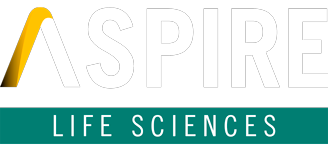Navigating Talent Acquisition Challenges in Europe's Life Sciences Industry

As a life science recruitment professional, I have had the pleasure of witnessing Europe's life sciences industry's growth, while also navigating its unique challenges. One such challenge is identifying and engaging with the right blend of passive and active candidates. In this blog, I will share my insights on the common trend of passive candidates in the life sciences industry, discuss the reasons behind this phenomenon, and explore how recruitment consultancies can play a crucial role in connecting organisations with top talent in a market where demand is high, and supply is limited.
The Landscape: Passive and Active Candidates in the Life Sciences Industry
As an HR professional in the life sciences sector, you may have noticed the rapid growth of the industry making it more challenging to identify and secure top talent. With fierce competition, it's essential for companies to distinguish themselves in the quest for exceptional professionals. Grasping the dynamics of passive and active candidates is crucial for you to stay ahead of the curve and successfully navigate these challenges.
The Common Trend of Passive Candidates in Europe
Life sciences professionals in Europe are often inclined to adopt a passive stance when it comes to job hunting. This trend can be attributed to several factors, such as job security, work-life balance, competitive employee benefits, and industry reputation. Additionally, passive candidates are often more reluctant to switch to new job opportunities or might appear as being selective. One key reason for this is the high degree of specialisation and the niche nature of their expertise, which fosters a sense of loyalty and stability within their existing roles. These professionals invest significant time and effort in developing their skills and forming strong working relationships within their organisations, making them more cautious about making any career move. Also, given the constantly evolving landscape of life sciences, they are more receptive to new challenges that can provide them with opportunities to expand their skill sets and contribute to ground-breaking advancements in their field. Consequently, passive candidates in this industry prioritise not just the financial and logistical aspects of job offers, but also the potential to make a meaningful impact in their new roles, ensuring that any career move aligns with their long-term professional goals and aspirations.
But even passive candidates can be receptive to exciting opportunities. A staggering 98% of those surveyed indicated their willingness to consider a compelling opportunity if approached. As a result, I've found it essential to develop targeted recruitment strategies, aimed specifically at engaging these passive candidates. By doing so, we can tap into a wealth of talent that might otherwise go unnoticed and ensure that your company remains at the forefront of innovation within the life sciences field.
The Role of Company Culture and Market Dynamics
The culture within European life sciences companies also plays a role in shaping this trend. Many organisations invest in developing a positive work environment, fostering employee loyalty and satisfaction. This results in professionals feeling content with their current roles and less motivated to actively search for new opportunities.
Furthermore, the life sciences market in Europe is highly competitive, with many well-established companies and start-ups vying for top talent. As a result, professionals in the industry may be more inclined to wait for opportunities to come to them, rather than proactively seeking them out.
The Indispensable Role of Recruitment Agencies
As we observe the growing prevalence of passive candidates in the life sciences field, we recognise the vital role recruitment consultancies play in bridging the gap between organisations and exceptional professionals. By utilising our in-depth industry expertise and well-established connections, we, as recruitment consultants, are equipped to pinpoint and engage with passive candidates who may not have been on a company's radar otherwise. This approach ensures that we foster meaningful connections to benefit both parties in the long run.
Expertise in Identifying and Engaging Passive Candidates
Recruitment consultancies are uniquely equipped with the skills and resources to engage with passive candidates on a personal level. By genuinely understanding their motivations and career aspirations, these agencies can present them with opportunities that align with their goals and encourage them to consider new possibilities.
Offering a Competitive Edge
By focusing on passive candidates, recruitment agencies can help organisations unlock the potential of this largely untapped talent pool. Passive candidates often possess valuable skills and expertise that may not be immediately apparent through traditional hiring channels. By partnering with a recruitment agency, organisations can gain access to these professionals, ensuring they have the right talent to drive their growth and success.
Aspire's Success in Tapping into the Passive Talent Pool
At Aspire, we pride ourselves on our unrivalled expertise in the European life sciences market, where an impressive 75% of our successful placements have consisted of passive candidates. Our cutting-edge digital market mapping system, meticulously designed and continuously refined, empowers us to accurately identify and engage with the top 15% of talent—within this highly specialised industry.
Having experienced the unique talent acquisition challenges that arise from the common trend of passive candidates in Europe's life sciences industry, I believe that understanding the reasons behind this phenomenon and leveraging the expertise of recruitment agencies is essential for HR professionals. By successfully navigating these challenges and securing top talent for their organisations, HR professionals can ensure their companies remain competitive and well-equipped to thrive in the rapidly evolving life sciences industry.
Recruitment consultancies, such as Aspire, are well-positioned to support HR professionals in their pursuit of exceptional talent, particularly when it comes to passive candidates. By building strong relationships with both clients and candidates, recruitment consultancies can bridge the gap between the two, helping companies secure the skilled professionals they need to drive their innovation and success.
In the life science industry, identifying and engaging passive candidates is crucial, particularly for niche sectors such as biotechnology, genomics, medical devices, and pharmaceuticals. These specialised fields require a unique blend of skills and expertise that may not be readily available in the active job market. By proactively targeting passive candidates, companies can tap into a wider talent pool and secure top-notch professionals who possess the necessary qualifications and experience.




